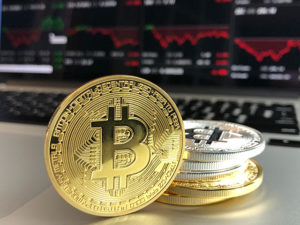The future of trading is here. ICOs have received a lot of attention from investors lately. But what exactly is an ICO and how does it differ from an IPO? This article will explain the key differences between investing in an ICO versus an IPO.
What is an IPO and an ICO?
An IPO, or Initial Public Offering, is when an established company offers partial ownership of the company to the public. The public is able to buy and sell shares of the company as well as receive dividends or distributions of the company’s profit.An ICO, or Initial Coin Offering, is when a company, typically a startup, offers coins in exchange for fiat currency or crypto-assets in order to finance a business idea. An ICO is an alternative route to Venture Capital (VC) investments or high-interest loans. The coins are then listed on a crypto-exchange where they are bought and sold similarly to shares.
What are the biggest differences between an IPO and an ICO?
1. Right to Ownership: In an IPO, the investors have a direct stake in the ownership of the company proportional to the amount shares owned. As a result, investors of an IPO have voting rights to select the board of directors. In an ICO, investors generally do not have a direct claim to the company’s assets. Instead, their investment is contained solely within the market value of the token. While there are several factors that can affect a coin’s value, the coin’s value tends to go up as the financial profitability of the company increases.
2. Established Business versus Startup: As mentioned above, another difference between an IPO and an ICO is that companies that offer an IPO have usually been around for a while. They offer an IPO because they either wish to expand or engage in a new project requiring additional funds. On the contrary, startups usually choose to offer an ICO because there are less regulatory requirements. On average, investments from an ICO fund the research and development of the startup’s first project. Sometimes a startup will offer a proof-of-concept or a proof-of-stake in their whitepaper; but there is almost never a completed product.
3. Extent of Governing Regulations: In most countries, IPOs are highly regulated by a government agency. In the United States, the Securities and Exchange Commission (SEC) makes administrative laws that govern IPO requirements. France has an equivalent regulatory agency known as the Autorité des Marchés Financiers (Financial Market Authority) or AMF. On the other hand, ICOs are usually conducted beyond national borders. This makes it hard for any one government to regulate them. ICOs are also less regulated because the concept is relatively new. Legislation has not yet caught up to the technology. While this makes it easier for startups to raise money, investors have little to no protection from deceptive startups.
Which One Should I Invest?
There are risks involved in investing in either an IPO or an ICO. Before investing, you should ask the following questions:
1. When was the company founded? What have they accomplished since then?2. Who are the executives and what is their prior experience?3. Who are the advisors? Are they credited in their professions?4. What is the product? Is it technologically plausible and marketable?5. When will the product be finished? What is the roadmap?
The above references an opinion and is for informational purposes only. It is not intended to be investment advice. Please seek a duly licensed professional for investment advice.
NeuroChain, let’s build a better world!
Photo credits:Pexels, Pixabay, freepik.comFollow us on Telegram, Facebook, Twitter and YouTube. If you have any questions, feel free to get in touch with NeuroChain Team, and we will answer you as soon as possible!

